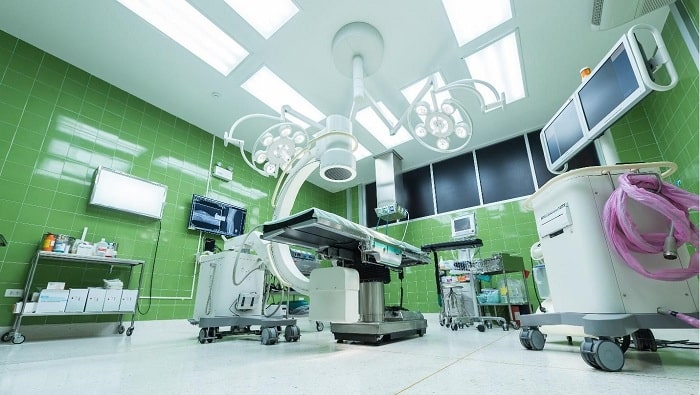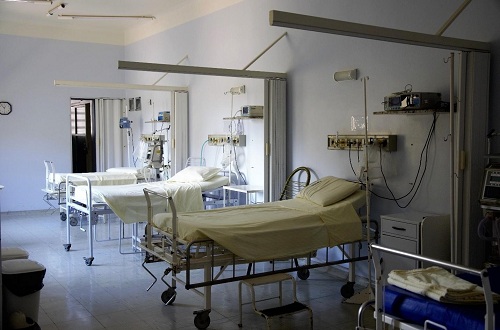Unlike many other institutions, hospitals must work 24/7. There’s no such a thing as a day off when it comes to them. At first glance, when you take a look at them, they look like huge buildings, filled with staff who move through the halls fast to make sure that every patient is being taken care of.
But only when you enter this facility do you realize every single part of it must be synchronized in order to run smoothly. When we’re saying part, we’re referring to both medical staff and various pieces of medical equipment that are necessary for normal functioning.
Besides doctors, nurses, and other staff, what are other crucial things that are keeping these institutions healthy? If you want to know the answer, then stay tuned, because below we’ll talk about these necessities.
Essential Things Hospitals Cannot Survive Without
IT Managed Services
Sadly, in the last couple of years, many reports have shown that precisely the healthcare industry is a prime target for numerous, serious security breaches. In fact, these breaches have tripled since 2018, with more than fifteen million patient records being jeopardized.
It seems like each year, hackers are becoming more and more resourceful and smarter. That’s precisely one of the reasons why IT managed services are crucial for health care providers and hospitals in general. With the help of these types of services, IT departments in these institutions can receive enhanced security while successfully dealing with productivity killers, such as outdated and useless equipment, slow bandwidth, and hard-to-reach archives.
These IT experts will focus on enhancing these operations and at the same time, provide hospitals with superb, cost-effective solutions and inventive technology, for instance, these things below:
- Bandwidth management
- High-quality backups
- Custom infrastructure
- Improved security
- Cloud storage
- Reliable IT troubleshooting and maintenance
- Decreased expenses
Medical Equipment And Supplies
You cannot imagine how many items are necessary for a hospital to run properly and provide its maximum. For example, bigger pieces of equipment, such as ECG machines and patient monitors are crucial to enable ongoing assessments to be executed.
Additionally, medical gas hose assemblies are essential to physicians and anesthetics so they can provide the safe distribution of anesthetics and oxygen to their patients. Besides these items, smaller things like syringes, surgical masks, bandages, and uniforms must be utilized every single day in the hospital.
Medical staff must make sure that all these items can be accessed at any given moment because, without them, this institution would never be able to function smoothly.
Let’s Not Forget To Mention Autoclave
Healthcare providers must bear in mind that hospital rooms can relatively easily be infected with chemicals, particularly in the places where different pieces of equipment are placed. In order to properly disinfect this equipment, they must employ sterilizers or an autoclave.
Namely, this machine utilizes pressure to get rid of harmful bacteria, viruses, spores, and fungi on the things that are put inside a pressure vessel.
Electronic Medical Equipment
It is widely known that electronic equipment is developed to record and monitor the body functions of the patient, such as brain waves and the heartbeat. There are different kinds of electronic medical supplies that are being used today:
- Software: Medical Imaging Software, Electronic Medical Records, and many others
- Medication pumps
- Monitors: Blood Pressure Monitors, Heart Rate Monitors, Ultrasound, etc.
- Powered Medical Equipment
- Mobile Technology Carts: Computers on wheels, Mobile Workstations, and many other things
- Defibrillators
- Pacemakers
Different Types Of Medications
It doesn’t matter whether they come in the shape of tablets, creams, or liquid, thousands and thousands of different pharmaceuticals are being given to the patients every single day in the hospital.
A vast majority of them are crucial for patient care. Namely, they are normally placed in controlled zones within these institutions and can only be used by authorized members of medical staff.
Nurses are the ones who usually give these medications to the patient, and each time it happens, it must be recorded on a patient’s records.
Blanket Warmers & Fluid
During surgery, it’s crucial to maintain body temperature, otherwise, it may potentially lead to numerous post-surgical complications, like preoperative hypothermia, prolonged hospitalization, and many other unpleasant things.
In order to prevent these occurrences, each hospital must have blankets and fluid warmers to maintain body temperature. They were developed to avoid hypothermia in surgical patients.
No matter how passionate they are about their job, we are absolutely sure that most healthcare providers will tell you that working in the hospital is very stressful. So if they want to make things simpler, at least a little bit, these facilities must ensure to have all these things that were mentioned here.



















